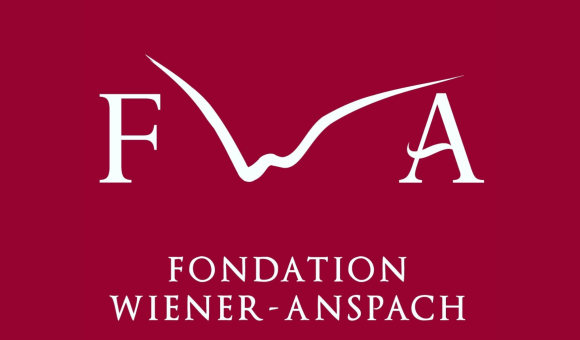
The Fondation Wiener – Anspach: Fostering Cross-Country Academic Collaboration between Belgium and the UK
The Fondation Philippe Wiener - Maurice Anspach (FWA) perfectly cultivates cross-country academic collaboration, fostering partnerships between the Université libre de Bruxelles (ULB) in Belgium and the Universities of Oxford and Cambridge in the United Kingdom.
Established in 1965, the Foundation has grown into a significant platform for academic and research exchange. They have supported close to 700 alumni since their fellowship programme’s inception, offering scholarships, fostering research, and organising academic events.
Their invaluable work has strengthened inter-university bonds, driving excellence in education and research.
What is cross-country academic collaboration?
Cross-country academic collaborations involve partnerships between universities, research institutions and other organisation, and in this case a Fondation d’utilité Publique (or Nonprofit organisation).
These collaborations facilitate access to resources, professional development and research, while also promoting student mobility, to provide opportunities for capacity development.
The History of the Fondation Wiener – Anspach

The Fondation Wiener - Anspach was founded in 1965 by Phyllis Beddington Wiener in memory of her husband, Philippe Wiener, who passed in 1944 in a German concentration camp. The Foundation also honours significant contributors, like Maurice Anspach, a Doctor of Law at ULB, a lecturer and close friend to the family, whose name was included in 1967 for his pivotal support and contributions.
The Foundation was established to promote academic collaboration and exchanges between ULB and two prestigious British universities, Oxford and Cambridge, with their fellowship programme starting in 1969.
FWA’s historical roots lie in its early post-graduate scholarships, evolving into a robust network supporting doctoral and post-doctoral research, while collaborative research projects began in 2012.
With the support of the Foundation, the ULB signed its first Memoranda of Understanding with Oxford and Cambridge in 2008 and 2009, which have been renewed every five years since to further solidify their partnership, In 2024, the these agreements were once again renewed at the Belgian Ambassador’s Residence in London.
This significant event was attended by key representatives from all institutions, including the Belgian Ambassador to the United Kingdom, Mr Bruno Van Der Pluijm, the General Representative of Wallonia-Brussels, Mr Motonobu Kasajima, the Vice-Chancellors of the Universities of Cambridge and Oxford, Professors Deborah Prentice and Irene Tracey, as well as Professor Anne Weyembergh, ULB Vice-Rector for External Relations and Development Cooperation, the Foundation’s President, Professor Didier Viviers, and its Executive Director, Professor Kristin Bartik.
Their presence reaffirmed the commitment to fostering academic collaboration and ensuring continued excellence in research and education between these institutions.
The Foundation’s Objectives and Outcomes
By offering fellowships, funding collaborative research projects, and organising academic events, the foundation empowers its beneficiaries to contribute significantly to academia, public service, and private industry.
The result:
Over the past 10 years, FWA has helped an average close to 20 Fellows per year, with an average of 660,000 euros spent each year for their fellowship programme.
In 2017 they launched their Wiener-Anspach Alumni Network (link) which provides opportunities to
- Meet, connect and strengthen the ties among Alumnae and Alumni, by regularly organising activities or by involving them more in preexisting activities regularly organised the Foundation.
- Put young Alumnae and Alumni in touch with those who previously benefited from the Foundations’ support. Current fellows at the end of their grant period and people wishing to apply for a Wiener-Anspach fellowship can also reach out to the Alumni Network.
Statistics


The Challenges Faced
Initially, the programme’s main challenges stemmed due to communication gaps and limited awareness amongst target groups, leading to early low engagement.
Clear communication and strong alumni networks are vital for long-term engagement, while targeted initiatives, like interdisciplinary funding and flexible models, ensure resilience against external challenges within the academic sector.
The Bologna Process
The Bologna Process, a collaborative reform initiative launched in 1999 to standardize and enhance higher education across Europe, led to the creation of the European Higher Education Area (EHEA).
The EHEA aim is to promote comparability, compatibility, and quality of academic qualifications among 48 participating countries, but it also introduced structural challenges and impacted the previous fellowship model.
Prior to the reform, FWA was able to grant fellowships to Oxbridge graduates looking to complete their Master’s Degrees at ULB, especially those focusing on European studies and European Law. However, with the reform’s introduction, this became not possible and required strategic reorientation.
BREXIT
Brexit further complicated matters by introducing uncertainties in international collaborations, funding, and mobility for scholars, adding another layer of complexity to the programme's sustainability and growth.
- The fees for postgraduate fellowships have risen on average three times higher, forcing the foundation to limit the number of postgraduate fellowships available.
- The cost of Visas and IHS (International Health Surcharge) for all fellows continue to rise each year. These are also covered by the foundation, creating further monetary issues.
- Some fellows have encountered administrative problems related to their visa procedures, such as delays and other technical problems.
COVID
- A number of Fellows were forced to end their stay abroad earlier than agreed to return home
- Although most Fellows managed to leave for their host institution, some had to postpone their fellowship to the following academic year
- The foundation granted extensions to all research projects being funded during that time, to avoid penalising their Fellows
Celebrating 50 years of activity
The Everlasting Impact of the Fondation Wiener – Anspach
The Fondation Philippe Wiener - Maurice Anspach exemplifies the power of academic collaboration and cross-country exchange. Its journey towards becoming a thriving network highlights the significance of dedicated academic partnerships.
As it looks forward to celebrating its 60th anniversary , its legacy continues to inspire excellence. The Foundation continued support of scholars and researchers in their pursuit of knowledge, innovation, and international cooperation, and their commitment to fostering meaningful academic connections, continues to shape the future of international academia.
Find out more about the Fondation Philippe Wiener – Maurice Anspach!